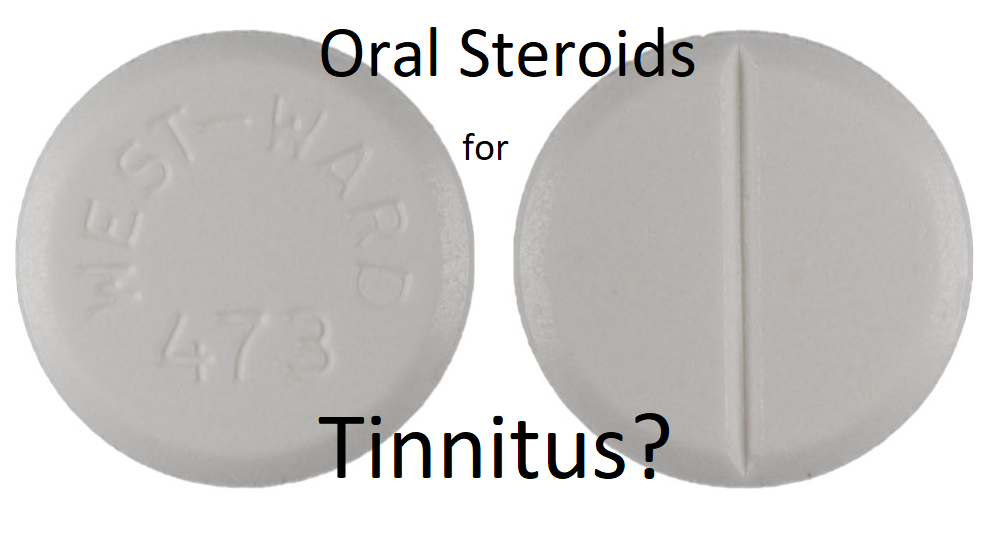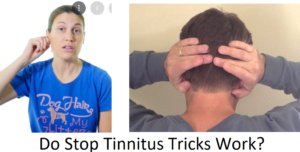You might have across a medical journal or study with a claim that steroids help resolve or at least provide some Tinnitus relief. But, is this true. Can injectable or oral steroids really treat Tinnitus? The answer is both yes and no. In some cases, steroids can also make Tinnitus much worse than it is. We discuss it all below.
When Can Oral Steroids Provide Tinnitus Relief?
When your Tinnitus is caused by Sudden Sensorineural Hearing Loss (SSNHL)
SSNHL is when one experiences profound and sudden hearing loss in one or both ears. It can happen without reason and is usually caused by aging. It can also be caused by infections, trauma to the head, several autoimmune diseases, as side effects to medication and also due to neurological conditions such as multiple sclerosis. Most patients who suffer from SSNHL experience it in their late 40’s to their 60’s and it usually affects only one ear (Unilateral). It can come on abruptly one morning or present itself after a sudden pop like sound, after which hearing quickly fades away.
What is Your Tinnitus Handicap Score?
Calculate your THI Score in about 2-3 Minutes
SSNHL is also often accompanied by other symptoms such as ear fullness (aural fullness), vertigo and Tinnitus. It is estimated that 80%+ patients with SSNHL experience both Tinnitus and Aural Fullness. 30% of patients experience vertigo.
Treatment of SSNHL often involves the prescription of oral corticosteroids or intratympanic steroids. The most prevalent form of steroid used to treat SSNHL is methylprednisolone. They go to work by both reducing inflammation and by reducing the reactions of an overactive immune system.
Both oral and injectable steroids are equally effective. Patients who cannot take oral steroids or who want to avoid side effects associated with an oral delivery usually opt for a direct intratympanic steroid injection.
How Severe is Your Tinnitus?
Find out by using this THI (Tinnitus Handicap Inventory) Scoring Calculator
How Effective is Prednisolone as a Steroid Treatment for Tinnitus?
Prednisolone can potentially resolve Tinnitus if it can first resolve SSNHL. Studies have indicated that about 35% of patients experience a reversal or relief from SSNHL, meaning that they get their hearing back. However, only a small portion of those successful patients however also experience relief from Tinnitus that presents itself as a co-symptom. If prednisolone can also provide Tinnitus relief, you will typically experience these signs to indicate that your Tinnitus is tapering down.
This treatment works best when it is administered immediately after SSNHL sets in. However, most patients who experience SSNHL assume that their lost hearing is a temporary problem, attributing it to ear infections, ear wax impaction and so on. SSNHL can also present itself as muffled hearing instead of deafness and this again can be ignored by many patients who hope it will be a temporary problem that will go away on its own.
Otolaryngologists agree that the steroid Prednisolone in oral or injectable form can be effective to reverse and resolve hearing loss, tinnitus and other accompanying symptoms, if delivered within 2 weeks from the onset of SSNHL. In some cases, this viable treatment window can stretch out to as many as 4 weeks. Beyond 4 weeks however, SSNHL and its other accompanying ear symptoms like Tinnitus are unfortunately permanent.
We wrote a very detailed post about Prednisone and Tinnitus here. There, you can learn about how Prednisone can resolve, reduce and even sometimes cause or worsen Tinnitus, if not tapered down properly.
When Your Tinnitus is caused by Meniere’s disease
Meniere’s disease is a disorder of the inner ear, causing dizziness (vertigo) and potentially hearing loss and Tinnitus as well. Meniere’s disease can be treated by an injection to the middle ear. The injected drug then goes from the middle ear to the inner ear, to potentially resolve symptoms vertigo, tinnitus and also hearing loss.
The steroid used to treat Meniere’s disease is Dexamethasone.
When your Tinnitus is caused by TMJ (Temporomandibular) disorders
Your ears are connected to your jaw by the temporomandibular joint. It is therefore not uncommon for problems like clenched jaw to cause Tinnitus. Bruxism and injuries to the jaw can also potentially cause Tinnitus.
In such cases, a combination of injectable steroids like Triamcinolone Acetonide + Bupivacaine can potentially provide relief to both your TMJ disorder as well as Tinnitus that presents itself as a co-symptom. However, studies have shown that this treatment protocol mostly works only if the patient presents both unilateral Tinnitus and also cervical pain as coexisting symptoms. Patients who did not present cervical pain as a co-symptom along with their Tinnitus actually reported a worsening of their Tinnitus, after treatment.
When your Tinnitus is caused by allergies
Allergies can block and disrupt the function of the Eustachian Tube. This is a tube that connects the ear to the sinus cavities in your face. When the eustachian tube is blocked, the pressure in the ear isn’t optimally regulated, potentially leading to problems such as muffled hearing loss, Tinnitus and in some cases, even temporary or permanent deafness.
Corticosteroids like nasal sprays can help in such occasions. Flonase for example has a corticosteroid called Fluticasone, capable of clearing out the Eustachian tube. We wrote a very detailed post about how Flonase can be used for Tinnitus. Other antihistamines can also help Tinnitus.
Also Read: Best drugs for Tinnitus


